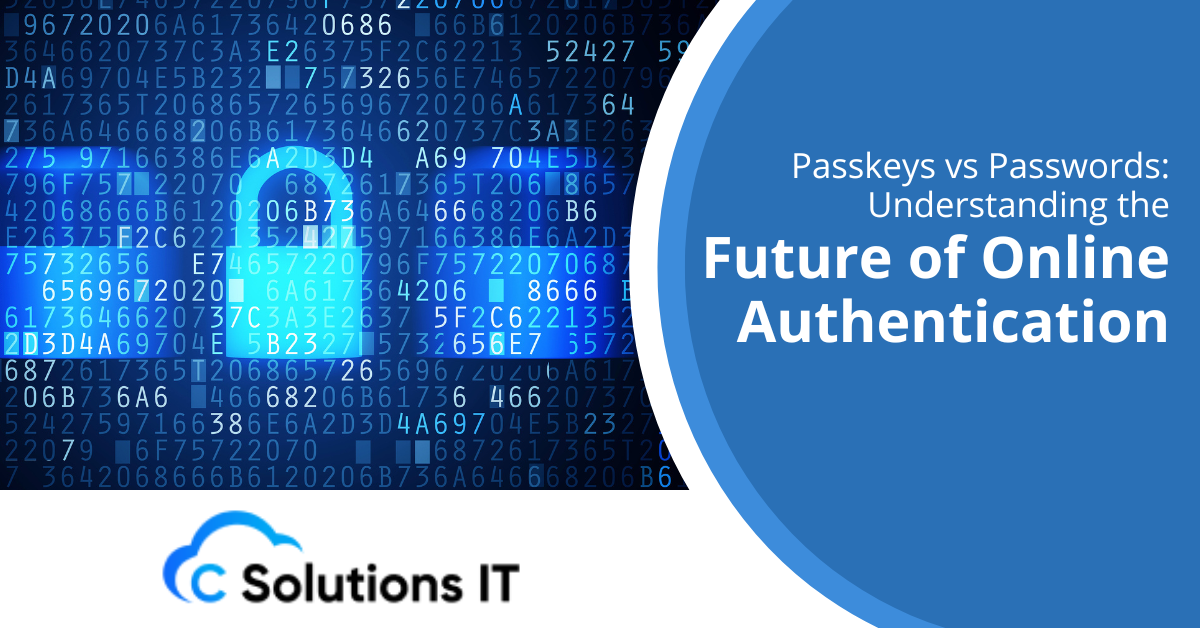Passkeys vs Passwords: Understanding the Future of Online Authentication

In recent years, the digital landscape has witnessed a significant shift in how we secure our online accounts. As cyber threats continue to evolve, traditional password-based authentication systems are increasingly seen as vulnerable and outdated. Enter passkeys – a new authentication method that promises enhanced security and user convenience.
But what exactly are passkeys, and should you use them when given the option? Let’s dive deep into this topic to help you make an informed decision.
What Are Passkeys?
Passkeys are a modern authentication method designed to replace traditional passwords. Unlike passwords, which are typically a string of characters that users need to remember and enter manually, passkeys leverage cryptographic techniques to provide a more secure and user-friendly login experience.
How Passkeys Work
When you create a passkey, your device generates a unique cryptographic key pair – a public key and a private key. The public key is sent to the website or service you’re logging into, while the private key remains securely stored on your device. To authenticate, you simply need to prove you have access to the device holding the private key, usually through a biometric check (like fingerprint or facial recognition) or a device PIN.
Advantages of Passkeys
Enhanced Security
One of the primary benefits of passkeys is their superior security compared to traditional passwords. Here’s why:
- Phishing Resistance: Passkeys are bound to specific websites, making them highly resistant to phishing attacks. Even if you’re tricked into visiting a fake website, your passkey won’t work there.
- No Server-Side Storage: Unlike passwords, which are often stored (hopefully in hashed form) on servers, passkeys keep the sensitive part (the private key) on your device. This significantly reduces the risk of large-scale data breaches.
- Unique to Each Service: Each passkey is unique to the service it’s created for, eliminating the risks associated with password reuse across multiple sites.
Improved User Experience
Passkeys also offer several user experience benefits:
- No Need for Memorization: You don’t need to remember complex passwords or use a password manager.
- Quick and Easy Authentication: Logging in is as simple as using your device’s biometric sensors or entering a PIN.
- Cross-Device Sync: Many passkey implementations allow for secure syncing across your devices, ensuring you can log in from any of your trusted devices.
Potential Drawbacks of Passkeys
While passkeys offer significant advantages, it’s important to consider potential drawbacks:
Limited Adoption
As a relatively new technology, not all websites and services support passkeys yet. This means you’ll likely need to continue using passwords for some accounts in the near future.
Device Dependency
Passkeys are typically tied to your devices. While this enhances security, it can potentially cause issues if you lose access to your devices or need to log in from a new or borrowed device.
Recovery Concerns
If you lose access to all your devices, recovering your passkeys can be more complex than resetting a forgotten password. It’s crucial to understand and set up the recovery options provided by your passkey system.
Passkeys vs. Traditional Two-Factor Authentication (2FA)
Many security-conscious users already use two-factor authentication (2FA) in addition to passwords. How do passkeys compare to this setup?
Security Comparison
Passkeys can be considered a form of two-factor authentication in themselves, as they require both possession of a device and a biometric or PIN to use. In many ways, they can be more secure than traditional password + 2FA setups:
- Phishing Protection: While 2FA codes can potentially be phished, passkeys are resistant to such attacks.
- Ease of Use: Passkeys eliminate the need to enter a separate 2FA code, streamlining the login process.
- Cryptographic Strength: The cryptographic principles behind passkeys offer strong protection against various types of attacks.
User Experience
From a user experience perspective, passkeys often win out over password + 2FA combinations:
- Faster Logins: No need to wait for and enter a separate 2FA code.
- Reduced Friction: Eliminates issues like lost 2FA devices or delayed SMS codes.
- Consistency: Provides a uniform login experience across supported services.
Should You Use Passkeys?
Given the advantages of passkeys, it’s generally recommended to use them when offered the option. Here are some considerations:
- Security Boost: If you’re currently using just a password, switching to a passkey will likely enhance your account security.
- Convenience: For most users, passkeys offer a more convenient login experience.
- Future-Proofing: As more services adopt passkeys, getting familiar with them now can ease your transition to a passwordless future.
However, it’s important to:
- Understand the recovery options for your passkeys and set them up properly.
- Be aware that you may still need passwords for services that don’t yet support passkeys.
- Consider using a password manager for your remaining password-based accounts to maintain strong, unique passwords where needed.
Embracing the Future of Authentication
As we move towards a more secure and user-friendly digital landscape, passkeys represent a significant step forward in authentication technology. While they’re not yet universally adopted, their benefits in terms of security and usability make them an attractive option for many users.
If you’re interested in implementing passkeys for your organization or need guidance on best practices for secure authentication, we at C Solutions IT are here to help. Our team of cybersecurity experts can assist you in navigating the evolving landscape of digital authentication and ensuring your systems are both secure and user-friendly.
Contact us today to learn more about how we can support your journey towards more robust and convenient authentication methods.
